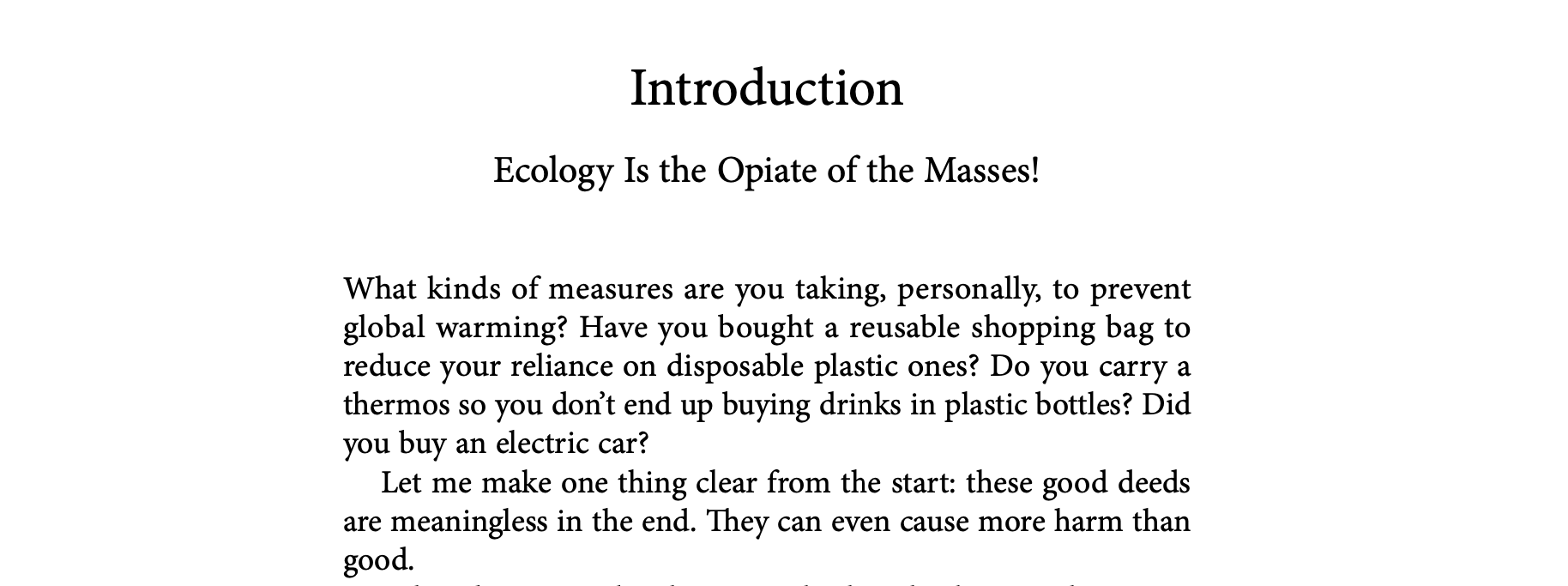Full Marx for Trying: degrowth is possible – but not this way

In ‘Slow Down’, Kohei Saito insists that only ‘degrowth communism’ can save us from climate disaster – but his argument fails to convince.
Slow Down: How Degrowth Communism Can Save the Earth
Kohei Saito (translated by Brian Bergstrom), Weidenfeld and Nicolson, £22
At the end of Slow Down, its Japanese author Kohei Saito calls for the 99 per cent to be united, for the 1 per cent super-rich elites to be overthrown. Why? Because ‘the only hope humanity has left for surviving the climate crisis and bringing about a sustainable, just society is degrowth communism’.
The degrowth movement proposes a radical reappraisal of the global economy to reduce environmental degradation and reduce social inequality. It has grown greatly over the past decade, and Slow Down is just one of many books to address it – in its original 2020 Japanese edition, it reportedly sold half-a-million copies. What a pity that it is unconvincing.
For Saito, a young philosopher, the way to successfully bring about degrowth is simple: ‘… we must choose communism. We must overcome our reflex to rely on experts and the state and proceed down the path to self-governance and mutual aid,’ he writes.
Overthrowing democracy
Saito believes he can already see a ‘groundswell’ in the American city of Detroit, for instance, with the cultivation of ‘fruit and vegetables in the streets’. The revolution has begun with urban organic farming, we are told, and will overthrow democracy, which, we learn, is not long for this world. He writes: ‘In this, [Thomas] Piketty and I are in total agreement’. This may be news to the French economist Piketty.
Long before this passage, however, Saito exhibits delusions of grandeur. In spelling out how his vision of degrowth might become real, the book begins: ‘I intend to excavate and build upon a completely new, previously unexplored facet of [Karl] Marx’s thought that has been lying dormant for the past 150 years’.
Saito lambasts a number of thinkers for misunderstanding Marx. Even Engels is scolded for overediting him.
In doing so, Saito lambasts a number of thinkers and writers for misunderstanding Marx: the British geographer David Harvey; the co-founder of Novara Media Aaron Bastani; the late French philosopher and sociologist Bruno Latour; the University of California sociologist Kevin Anderson – they all get it in the neck. Even Friedrich Engels is scolded for over-editing Marx.
Each, it would seem, falls short of Saito himself who, in Slow Down, completes what Marx ‘… started in Capital by fully theorizing what degrowth communism might look like, creating a major new analysis adequate to this new age’.
How austerity generates growth
Useful work on degrowth is mentioned, such as the writing of Jason Hickel, author of Less is More. Hickel’s explanation is that austerity generates growth by causing scarcity, whereas degrowth would require the provision of an abundance which, in Hickel’s words, would ‘render growth unnecessary’.
Slow Down also has effective lines on climate change, which itself produces scarcity: ‘Climate change renders water, farmland and habitation scarce. As this scarcity rises, demand rises too, until it surpasses supply and provides a prime opportunity for capitalists to reap huge profits,’ writes Saito.
The book’s framing of the ‘99 per cent’ and the ‘1 per cent’ is problematic.
As to how we get what we need, the Rochdale Society of Equitable Pioneers of 1844 is mentioned, but not how co-operative movements could scale up sufficiently. Spain’s Mondragon Corporation is the world leader in the co-operative movement, but is omitted – highlighting its success might imply that there is an existing alternative to Saito’s global vision.
Other problems blight Saito’s recipe for a new world order, not least his framing of the ‘99 per cent’ and the ‘1 per cent’. First, the 99 per cent that he describes are not as one. Instead, they range from the poorest souls on Earth to those who are within a whisker of being in the top 1 per cent of the income or wealth distribution.
Second, hardly any of the 1 per cent are the super-rich elite. On a global scale they are likely to include many people that the western readers of this article may know. Nor is it true that, should global warming melt more of the Antarctic ice sheets, the number of people who ‘… have to evacuate their current home [will be] in the hundreds of millions’. Climate change will probably allow for regrettable but managed relocation, not mass sudden evacuation.
Falsifying the reality of communism
Saito’s writing also suffers from its reliance on the thinking of the Slovenian philosopher Slavoj Žižek. He unquestioningly adopts Žižek’s definition that ‘communism is nothing less than the conscious attempt to reconstruct the commons – knowledge, nature, human rights, society – dismantled by capitalism’.
By doing so, Saito may suffer from what the late sociologist Zygmunt Bauman said was Žižek’s falsifying of the reality of communism. ‘I am amazed (and angered!) by the widespread tendency to consider Žižek a left-wing person,’ Bauman wrote in his final publication.
As an alternative to the erratic Slow Down, try Hickel’s Less is More or indeed Bauman’s final book My Life in Fragments if you want an understanding of where degrowth might be heading and how hard it is to get there.
For a PDF of this review and where it was originally published click here.

Intro to the book